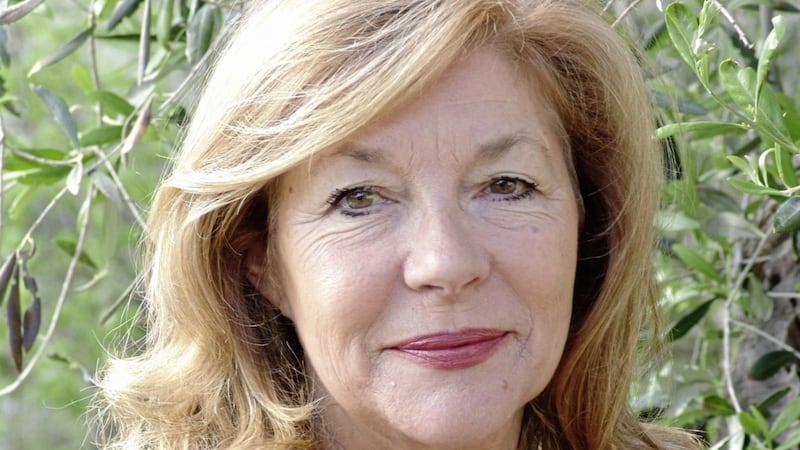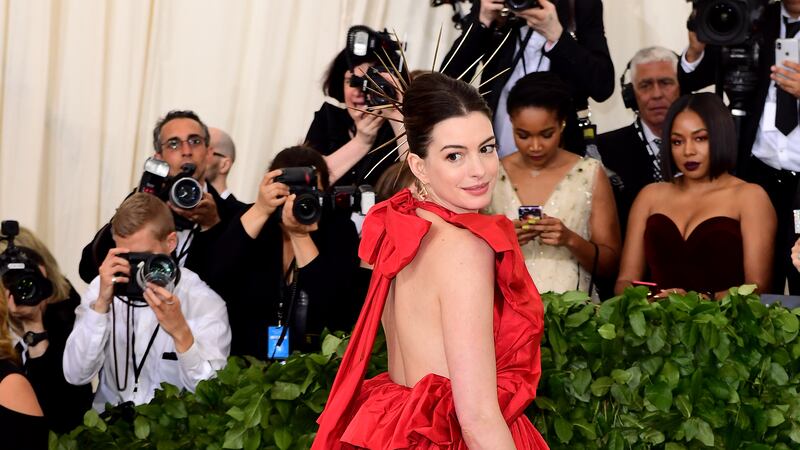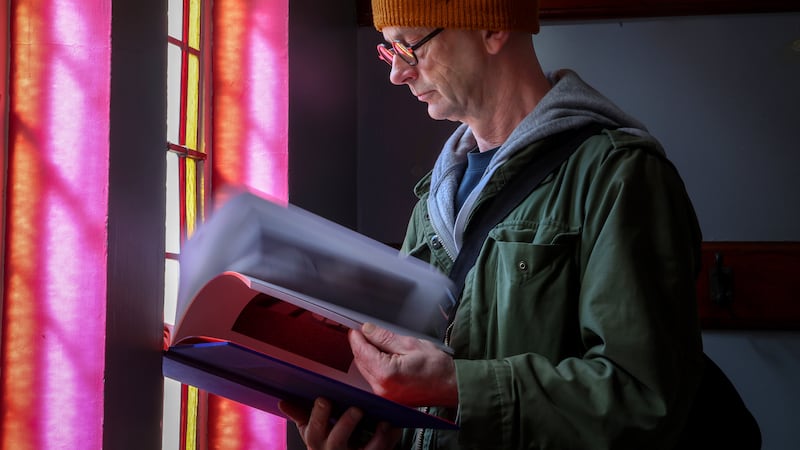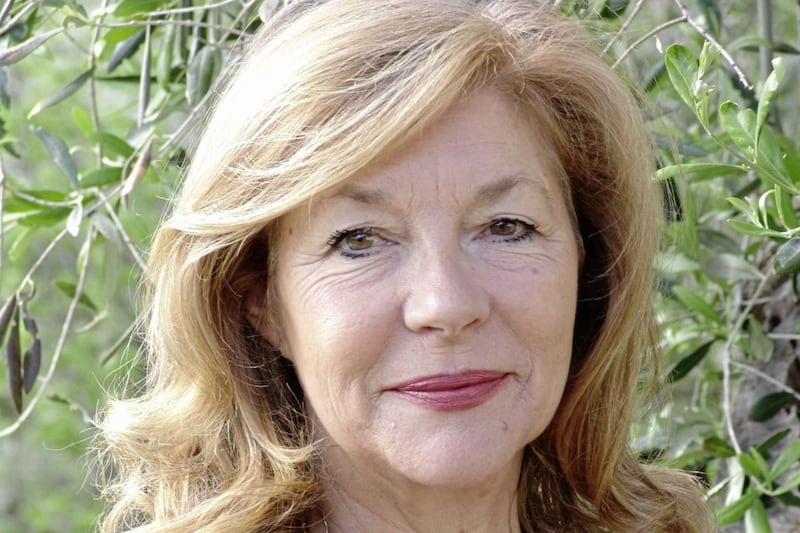SET against the backdrop of the 2015 terrorist attacks in Paris, Carol Drinkwater's latest novel, The Lost Girl, is a heart-rending story of loss and enduring love.
Still remembered fondly by legions of fans as Helen Herriot in the much-loved television series All Creatures Great and Small, the 67-year-old is now better known for her books, though she describes herself as "an actress who writes".
And she has written more than 20 books. Her first, the teen novel The Haunted School, was published in 1986 and later adapted for television, with Drinkwater in the lead role.
It was her bestselling Olive trilogy, in which she candidly chronicles her real-life trials of rescuing a ruined olive farm overlooking the Bay of Cannes, that truly cemented her status as an acclaimed writer. The memoir series was a project that led to her travelling solo around the Meditteranean and the war zones of the Middle East in search of the roots of the fabled olive tree, and also transferred to the small screen in the form of a documentary series.
Her new work of fiction, The Lost Girl, was another labour of love, which involved careful research. Set in Paris, the occupied West Bank and the Cote d'Azur in two time zones – 2015 and the late 1940s, it highlights the troubled world we live in, amid the constant threat of terrorist attacks and the emotion of ordinary lives caught up in disaster.
The story centres on war photographer Kurtiz who is waiting for her estranged husband and daughter Lizzie, who disappeared four years previously. By chance Kurtiz has a brief encounter with Marguerite, an elderly lady who in her heyday was a small-time, but well known actress.
As the tragic events in the city unfold, amid the physical pain of grief and shock, Marguerite's stories of love and loss in post-war Provence shine light into the shadows, restore hope and bring the unexpected.
Drinkwater draws on her knowledge of Paris, Provence (where she has lived with her husband, documentary film-maker Michel Noll, for more than 30 years) and the Middle East to give structure and strength to her characters and their lives.
The book, in stringent detail, documents the chaos and emotions of that evening of terror of November 13 2015 and the acts of humanity that followed in the aftermath.
Needing precision to fuel her story, Drinkwater locked herself in the mediatheque of The National Library of France watching wall to wall news footage of the events and listening to interviews about that fateful weekend in Paris, in which 130 diners and concert-goers were murdered and another 368 injured in a series of six coordinated attacks
As she spent a month enclosed within the silence of her booth, scribbling notes furiously, she admits she shed more than a few tears.
"I feel, even today, as if I'd been at the attacks myself. It was so draining and raw to watch other people's grief, but every time I was looking for different detail and checking precise times so that the time structure in the book was accurate," she explains.
Despite the painful subject, Drinkwater says The Lost Girl was a story she "had to write".
"On November 13 I was standing making dinner in my home in France with my mother We were frozen watching the event unfold. When they said the Bataclan had been taken over by terrorists and [they were] shooting concert goers in cold blood, mum and me wrapped our arms around each other and wept.
"Mum said to me: 'For everyone of those people in there fearing for their young lives, there is a mother outside praying their child will get out'. That was the seed for the book."
Drinkwater believes it was the terrorist attack against the Charlie Hebdo magazine offices in Paris in January 2015 which set the tone for her literary response to the November attacks.
"My husband's office was one street away from the Charlie Hebdo offices and when I first heard about the shooting outside Bastille I though 'O God, Michel's in that'. I couldn't get hold of him, but in fact he had gone to a meeting elsewhere in Paris and he didn't even know about it. The uncertainty and fear was a great shock to me," recalls Drinkwater about the attacks, in which one of her husband's friends lost his life.
The Paris terror attacks isn't the first time Drinkwater has witnessed such depths of human suffering, nor been moved by the generosity of human spirit, having been caught up in Al-Qaeda bombings in Algeria and visited Palestinian refugee camps in Lebanon.
"The most poignant memories I found all over the world in times of stress, war and difficulty were those of human kindness, the strength and indomitability of individuals – not the hatred. I wanted my novel to portray that."
Although she has done documentary narrations and audio books in recent years, Drinkwater can't actually remember her last screen role. However, she reveals she has just been offered "a wonderful role in a film".
She does, of course, have fond memories of acting alongside the late Robert Hardy, who played senior vet Siegfried Farnon in All Creatures Great and Small, the TV adaptation of Herriot's autobiographical series of books about his life as a vet in rural Yorkshire in the 30s and 40s. The actor died last month.
"I'd seen Robert about eight months ago when all of us had a reunion in Yorkshire to celebrate the centenary of the birth of James Herriot," she says. "I have such fond memories of the camaraderie between us. [All Creatures Great And Small] was a real, real team effort and Robert Hardy would often invite everyone to dinner at his, where I remember lots of laughter.
"Although I was less keen on the cold weather, the early days were such fun. When it became a roaring success, with 24 million viewers, we were all on such a high and you
really looked forward to getting out of bed and going to work."
Drinkwater is looking forward to taking part in the Aspects Literary Festival in Bangor where she will be reading from and speaking about The Lost Girl as well as holding a workshop on memoir writing.
No stranger to Ireland, she is actually an Irish passport holder – her late mother was Irish, as were her grandparents on her father’s side. She cherishes memories of spending her school holidays on the family farm in Co Laois and even owns her own "Irish bolthole" near the Offaly, Laois and Tipperary border.
After the emotional experience of penning The Lost Girl, she sought some light relief in penning a fictional short ebook, The Love of a Stranger, released last week
on the Amazon Kindle Singles series.
"It's about a woman who leaves England because she is in mourning for the death of her partner. On the train going down to the south of France she meets three wacky French men who invite her to her chateau. It was entirely fictional and great fun," she laughs.
:: Carol Drinkwater will be in conversation on September 22 at 6pm and facilitating a Memoir Writing workshop on September 23 at 10am, at North Down Museum, Bangor, as part of the Aspects Literary Festival, which runs from September 14-24. For full programme details see Aspectsfestival.com. The Lost Girl is published by Penguin and available now.



